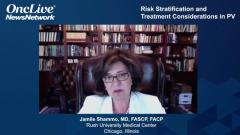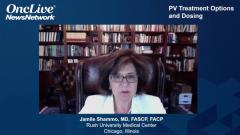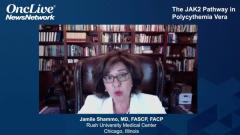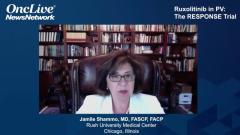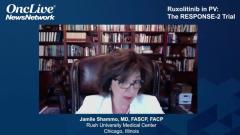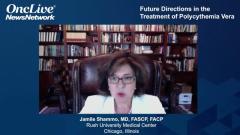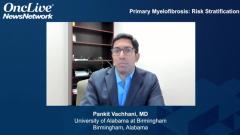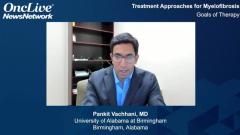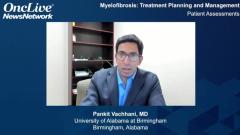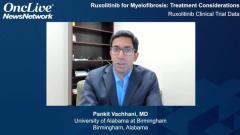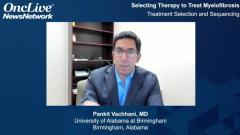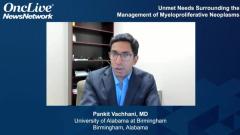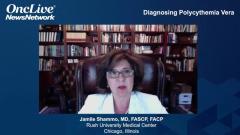
Unmet Needs in Management of Myeloproliferative Neoplasms
Pankit Vachhani, MD, reacts to treatment limitations for health care professionals who care for patients with myeloproliferative neoplasms.
Episodes in this series

Pankit Vachhani, MD: There are several unmet needs in the field of myeloproliferative neoplasms [MPNs] from a therapeutic standpoint. In essential thrombocytosis, for example, where the survival is the best among all the classical forms of MPN, the current treatment options don’t particularly improve the symptomatology of the patient. So that is an unmet need for those patients. For patients with polycythemia vera or essential thrombocytosis, we also lack treatment options that could improve and modify their underlying MPN, potentially for example, decreasing their clonal evolution into, let’s say, myelofibrosis or acute myeloid leukemia. In the field of myelofibrosis, per se, there are several unmet needs, one being the improvement of overall survival in a setting of prior JAK2 inhibitor use and failure to it. In this space, which is a second-line space in myelofibrosis, we don’t have good options. Several clinical trials are ongoing to assess various new drugs in this space.
Another area of unmet need would be patients with myelofibrosis and thrombocytopenia. Thrombocytopenia, as one knows, is a risk factor for worse outcomes. But in the case of patients with myelofibrosis, and especially a platelet count of less than 50 x 109 per liter, for example, there aren’t any good treatment options. The third area of unmet need would be somewhat similar to the second point that I just mentioned, which is myelofibrosis and anemia. Anemia can sometimes prevent physicians from using the most optimal dose of JAK inhibitor that they would like. Additionally, it is a burden on the patients in the form of transfusion requirement and also more symptoms such as fatigue, dyspnea, headaches, and tiredness generally. Improving anemia therapeutically, plus or minus transfusion, would help improve the field and optimize the treatment options in the form of better dosing of JAK inhibitors or other treatment options. These are 3 areas of unmet need. Finally, if I had to choose 1 more unmet need, I would say optimizing the role of allogeneic stem cell transplant, be that through a conditioning regimen, the transplantation donor choice, or post-transplant treatment, potentially even maintenance treatment.
TRANSCRIPT EDITED FOR CLARITY


